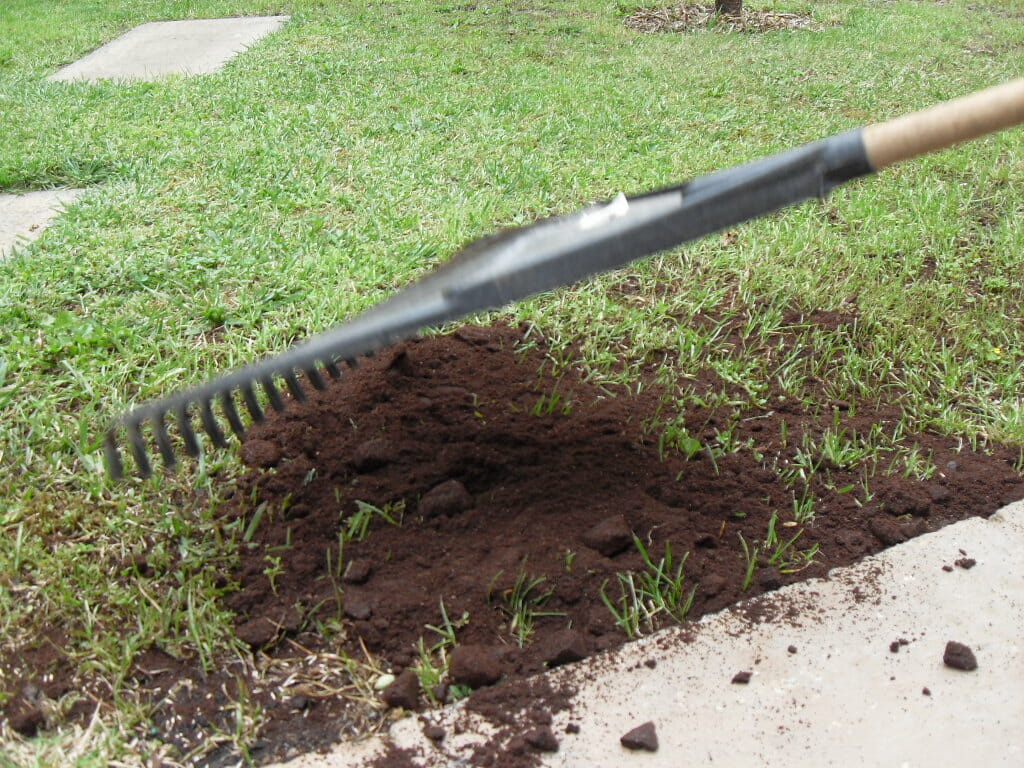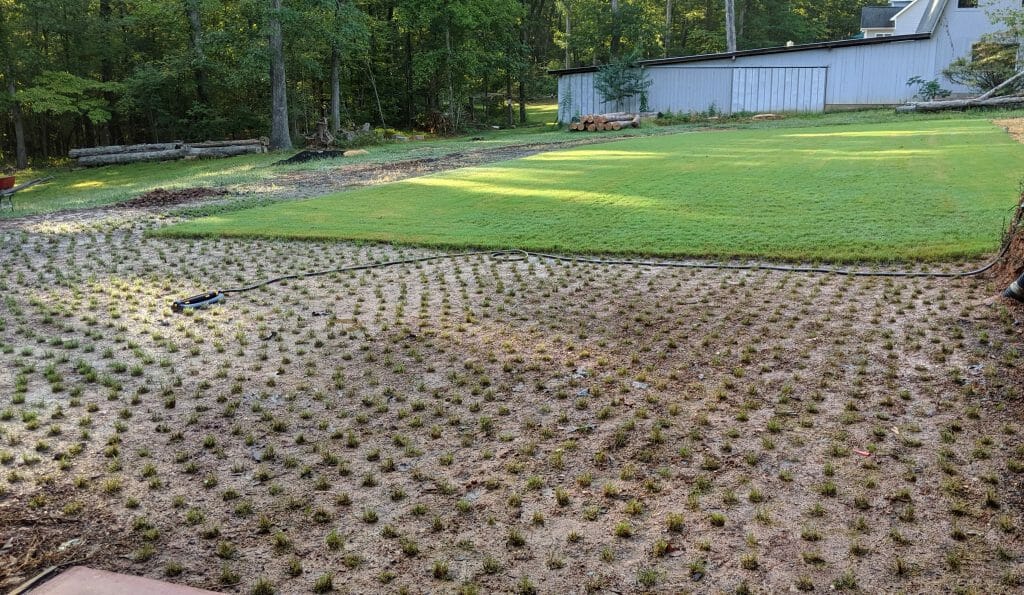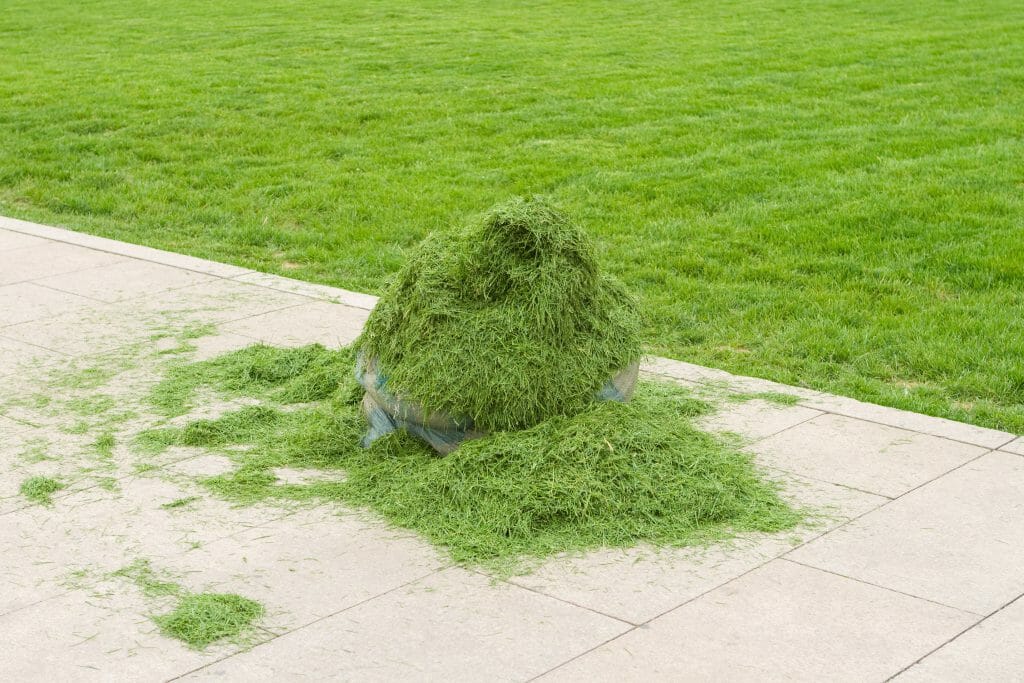Fertilizer is one of the most important factors if you’re trying to obtain the perfect lawn. The main ingredients in most fertilizers are nitrogen, phosphorus, and potassium, also known as NPK. These nutrients are essential for plant growth and development, but does lawn fertilizer expire?
Does lawn fertilizer go bad? Yes, lawn fertilizer does go bad over time but it takes years for fertilizer to expire. When you store fertilizer properly, i.e. away from moisture and without getting frozen, it can last between 4 – 10 years. The only type of fertilizer that may expire sooner is fertilizer mixed with a pesticide.
Find out which type of fertilizers last longer and how to properly store them to prolong their shelf life.
Why Fertilizers Have a Long Shelf Life
Most lawn fertilizers have three basic components: nitrogen, phosphorus, and potassium. There are elements that do not expire.
Although many products become less effective over time, there is no half-life for nitrogen, phosphorus, and potassium. So, good fertilizer stays just as effective years after you have bought the bag.
What can affect how well fertilizer works is the additional ingredients and how it is stored. Either the additional ingredients expire or improper storage damages the fertilizer quality.
How Long Do Different Fertilizers Last Before Going Bad
Most fertilizers won’t go bad for years but there is quite a difference between the types of fertilizers. Some lose their effectiveness over time while others can be used up to 10 years later.
Take a look at the different types of lawn fertilizer and how long they last.
Dry Fertilizer: 4 Years to Infinity
Dry fertilizer or granular fertilizer lasts indefinitely if it does not contain any additional ingredients. As mentioned, the elements nitrogen, phosphorus, and potassium do not expire.
However, most dry fertilizers are mixed with other ingredients, usually a herbicide, insecticides, or feed varieties. The addition of these ingredients is what causes granular fertilizer to expire.
Liquid Fertilizer: 8 – 10 Years
Unlike dry fertilizer, there is an expiry date for liquid fertilizers. This type of fertilizer is also more difficult to store which may affect how long it stays good.
There is a difference between how long a liquid mineral fertilizer lasts and how long an organic liquid fertilizer lasts. Liquid mineral fertilizers can last up to 8 – 10 years but for the organic kind, the expiry date is usually much sooner.
Always check the expiry date on the bottle when buying liquid fertilizer, regardless of which type it is. Don’t worry if the liquids inside are separated, it stays effective after you give it a good shake.
Fertilizer with Insecticide or Herbicides: 4 Years
Fertilizers with a killing agent or feeds last the shortest time of all fertilizers. Again, this is not because of the fertilizer components itself but the added insecticide, herbicide or feed.
Herbicides and insecticides become less effective over time. So, even if it is not yet past the expiry date it might still not work as well as it should.
Check the product label for the expiry date. The further away the expiry date is the more effective the chemicals are.
Compost: Indefinitely
Some prefer to use compost over store-bought fertilizers. The advantage of using compost is that it lasts indefinitely.
However, just like with any fertilizer, its storage does affect its shelf life. Lack of aeration, a nitrogen-carbon imbalance, or too much moisture are all factors that can make compost anaerobic and so ineffective.
Note that the volume of compost does reduce with time. This is because the organic materials are continually breaking down. However, this does not affect how well it performs.
Granular Fertilizer
How to Store Fertilizer Properly
Different types of fertilizer are best stored differently. Here are the basic storage principles of each.
How to Store Granular Fertilizer
- Keep the granules as dry as possible. Make sure no moisture can get inside the bag.
- Keep the granules in a cold but dry space away from direct sunlight.
- If the granules have become clumped together, simply break them apart again. Caked-together fertilizer granules are still effective.
How to Store Liquid Fertilizer
- Make sure the seal is closed tightly, don’t let any moisture inside.
- Ensure the liquid won’t become frozen, this damages the fertilizer.
- If the components are separating, simply shake the bottle until everything is evenly mixed again. The fertilizer is still effective after this.
Frequently Asked Questions
How Long Does Lawn Fertilizer Last Once Applied?
How long the fertilizer lasts after it has been applied depends on the type of fertilizer. Slow-release fertilizers, usually the dry variety, are effective for 6 – 8 weeks. Liquid fertilizer breaks down much faster – most only last for 1-2 weeks.
Does Unopened Fertilizer Go Bad?
As long as the packaging is not damaged, fertilizer will last for many years or even indefinitely. An unopened bag of dry fertilizer won’t go bad unless there are other active ingredients mixed in. An unopened bottle of liquid fertilizer lasts up to 4 – 10 years depending on the exact composition.
Does Lawn Fertilizer Go Bad If Wet?
Moisture is not good for any type of fertilizer. Regardless of whether it is dry or liquid fertilizer, it should not get mixed with anything else when it is still in storage.
When fertilizer comes into contact with moisture, whether it is from rain or humidity, the components begin degrading. In other words, fertilizer that gets wet is no longer effective.
Fortunately, fertilizer that got wet can still be used for other purposes. You can revitalize a separate plot by mixing together the fertilizer and soil. This is one of the ways you can bring nutrients back into depleted soil.
Keep in mind that the soil is not ready for any vegetation at the beginning stages. You must let the plot rest until it has been revitalized.
One of the big advantages of any type fertilizer is that it takes years for it to go bad. However, fertilizer mixes with additional ingredients do have a shorter shelf life. Just remember to store your fertilizer properly so that it won’t degrade.




